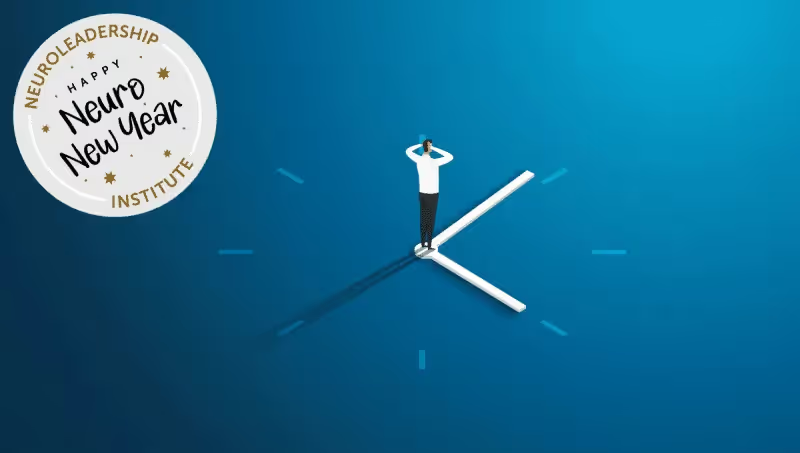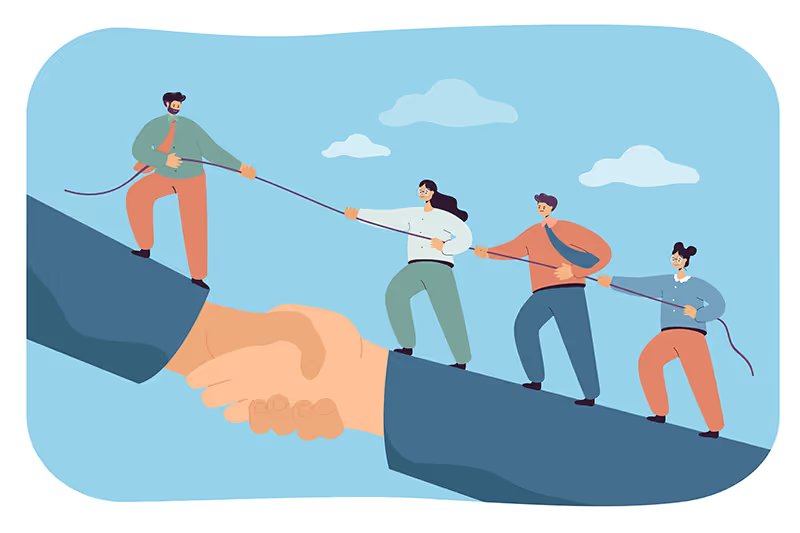One thing we all have in common is that we struggle with time. Old or young, industry-leading CEO or retired pensioner, we all know the feeling of wishing we had more of it. And we’re all too familiar with the irrational behaviors that go along with that sense of scarcity.
We’re consumed with busyness, and we struggle to resist distractions, which keep us from the things most important to us. We suffer from anxiety and overwhelm, and we wage endless battles against procrastination, overscheduling, and overcommitting.
Underlying all these problems, argues Oliver Burkeman, author of “Four Thousand Weeks: Time Management for Mortals,” is a single, inescapable truth: Our time on Earth is finite. If we’re lucky, we’re afforded around 4,000 weeks — not nearly enough time to do everything worth doing.
The neuroscience of time management
The problem isn’t just that life is short. It’s that we don’t have trouble accepting its finitude. Death is a frightening, anxiety-inducing thought, and we engage in strategies of emotional avoidance to escape the discomfort of mortality. That’s why we struggle so much with procrastination and distraction, often spending the least time on the things we value most.
A number of cognitive biases interfere with our ability to be productive and manage our time well. One is hyperbolic discounting, also known as present bias — our tendency to choose smaller rewards now over larger rewards that are more distant in time. It’s why we choose impulsivity and immediate gratification over long-range goals.
Another is rosy prospection, or the persistent sense that someday, at an undefined point in some rosy, sun-drenched future, our real life will finally begin. It’s then, we imagine we’ll finally get a handle on time and be able to do the long-delayed things that really matter to us, such as hiking the Alps, starting a business, or playing with our kids.
But that’s an illusion. There’s no imminent future moment when we’ll magically have time for everything, no matter how efficient, productive, and disciplined we are.
What this boils down to is that if you think you’re managing your time imperfectly, you’re not spending time doing what’s important to you. If the most important thing in your life is to write a novel but you spend all your time playing video games, you’re not managing your time effectively.
Poor time management also leads to stress. When you constantly feel like you’re drowning, trying desperately to play catch up, it creates a threat state in the brain. Studies show our ability to do creative work is impaired when the brain is in even a mild threat state, which is why it’s critical to manage your time well enough to set your mind at ease.
Here are some strategies to redefine your relationship with time.
Stop trying to do everything
Conventional wisdom holds that better time management is about increasing efficiency, using productivity hacks to fit more work into less time. For decades, the consensus was that entrepreneurs, executives, and other high achievers should work themselves to the bone. On Wall Street, in Silicon Valley, and on Capitol Hill, “I can sleep when I’m dead” was a common refrain. Today we know that stiffing yourself on sleep not only takes years off your life but also makes you less productive overall.
Conventional wisdom also says we should skip lunch, power through distractions, grind things out in marathon meetings, and multitask to get more done. But the research tells us that cognitive capacity is limited and the brain needs frequent breaks. We’re actually more productive when we take downtime and give our brains a chance to rest, recharge, and generate insights.
The first step to time management, then, is to accept that we can’t do everything — to do what we can but stop faulting ourselves for not doing more. Then, in the limited time we have, focus on the actions most aligned with our most valued goals.
Reduce cognitive load
One of the biggest obstacles to effective time management is overwhelm. We all know the feeling of having so much to do it’s hard to even keep track, let alone finish it.
Working memory only holds a few units of information, and when our mental task list exceeds five or six items, the brain is forced to apportion part of our attention to just trying to make sure nothing falls through the cracks. We all know multitasking doesn’t work, but trying to keep track of all your tasks in your head can inadvertently have the same effect.
When cognitive load is high, we gravitate toward what’s easy, not what’s most important. If you’ve ever felt like the busier you get, the more time you waste scrolling your phone or staring off into space, overwhelm is the reason. Those procrastination activities are your attempt to escape overwhelm and find relief, a cognitive bias that emerges when we’re maxed out.
The solution is to reduce cognitive load, and the way to do that is to stop trying to keep track of everything in your head. The concept is called “capture,” getting all those nagging background thoughts out of your head and onto the page. So make a point to start each day by capturing all those things you have on your mind. By putting your goals, tasks, and priorities in writing where you know you won’t forget them, you free up cognitive resources to be creative and productive — so you can focus less on worrying and more on work.
Resist inner distractions
We all know about the dangers of distractions — Twitter, Instagram, YouTube, and the thousand other technological temptations that vie for our attention. And there’s no doubt the traditional countermeasure — to cut out digital distractions by using blocker apps or turning off your phone — is sound advice.
But when we place all the blame on external distractions, we’re addressing only half the problem. Yes, those apps are designed to hijack our attention and addict us. But they don’t always do so against our will.
As Burkeman points out in his book, in the battle for our attention, we are often not hapless victims but willing collaborators. When we’re trying to get work done, we actively seek them out to escape discomfort. When a work task is difficult, stressful, or uncertain, we look for ways to relieve the pressure. And that usually takes the form of turning to something that’s easier on the brain but potentially less meaningful and important.
The underlying mechanism is experiential avoidance, our tendency to avoid strenuous, unpleasant, or difficult tasks, even if they’re important work priorities. The solution is to recognize that work can be difficult — to accept the discomfort of hard work, notice when we’re tempted to flee that discomfort, and be intentional about staying on task and building in breaks so the brain doesn’t get tired.
By accepting the finitude of time and the limits of cognitive capacity, we can be more intentional in our choices — and spend more time on the things we truly value.




.avif)



